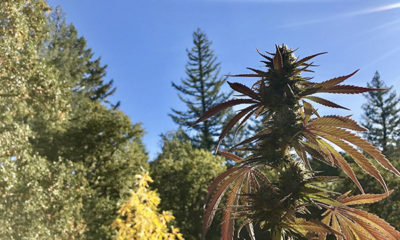
Joint Opinions
Dollars and Sense: Marijuana Investment Group Hosts Shark-Tank Like Pitch Session for Cannabis Industry Investment
On Jan. 24, the Arcview Group, an investment group looking to finance new cannabis industry businesses, held a “shark tank like pitch forum” in old town Las Vegas, slightly removed from the popular Las Vegas strip. Investors and influencers milled about over plastic cups of yogurt parfait and coffee in anticipation for the biggest investors’ meeting of the group’s history, the Vice.com crew filming in the corner.
Business hopefuls were provided the opportunity to pitch their business plans to the group of investors, with hopes of securing start up funding to kick-start their cannabis businesses.
Following the record-setting recreational cannabis sales this month in Colorado excitement is high, so high that the group, which boasted 25 members with at least $50,000 to invest when it went public in November 2011, had 140 members at the most recent Las Vegas meeting. The meeting was also scheduled in conjunction with the CHAMPS trade show, a regular business-to-business trade show featuring businesses ancillary to the cultivation and sale of marijuana such as glass pipe and bong manufacturers, vaporizer companies, lock boxes, magazines and other associated legal businesses.
Politicians, investors and companies hoping to play a lucrative part in establishing the legal industry as it develops turned out from across the country, including co-founders Troy Dayton and Steve DeAngelo, New York State Assemblyman Dr. Stephen M. Katz, Pennsylvania state senator and U.S. congressional candidate Daylin Leach and CEO of Dixie Elixirs Tripp Keber, among others.
“It’s no mistake we are in Vegas,” said Joe Brenzy of the Nevada Cannabis Association. “Nevada and cannabis are a perfect fit. Welcome to the future Amsterdam of the West… by this time next year we are hoping to have 60 legal dispensaries in Nevada.”
Nevada’s population is 2.67 million, nearly 2 million of which live in the Las Vegas metropolitan region. Brenzy says that Nevada’s business-friendly laws and the 36 million annual visitors who spend their money in Las Vegas are creating the conditions for a boom that would employ local workers and potentially stabilize the shaky local economy, hard hit by the mortgage crisis.
“Imagine our economic future,” said Sen. Daylin Leach. “If we are successful, there will be 50 of us [politicians] here next year.”
Leach has made marijuana legalization for medical and recreational purposes central to his campaign platform in his bid for U.S. Congress. Leach added that the economic opportunities and the proven safety of the substance spell out the recipe to a much-needed economic boom not just in Pennsylvania, but also in the rest of the country.
The Arcview Group released market research in November 2010 forecasting that in the next five years, 14 states will fully legalize marijuana and two more will become medical-use states. In November, Arcview projected revenues of $2.3 billion in 2014 alone, but has since raised their prediction to $2.7 billion. Arcview has also projected a growth rate of 68 percent, putting it on par with or exceeding the mobile phone industry.
“It is the fastest growing industry in the U.S.,” says co-founder Troy Dayton, “In this industry three months is like five years.”
But amidst the excitement in the room, there was a notable absence of women and people of color speaking or in attendance, an inaccurate reflection of the legal industry today. This absence played into fears in the medical marijuana activist movement and small business industry that “Big Canna” will be run by an old boy’s club concerned more with high profits rather than responsible business practices in a nascent industry projected to be worth billions annually.
Getting funding from ArcView has become somewhat of a lofty goal in the industry. Because cannabis is a Schedule I controlled substance and is technically federally illegal, it is difficult for entrepreneurs to secure small business loans, putting ArcView’s investors (and other investment firms like it) in high demand for small businesses looking to join the marketplace.
The air in the room buzzed with excitement as the speakers touted the political and financial gains made in the last year. The excitement wasn’t without warrant: choosing the right business to invest in might mean a steady source of cash, and investors and companies are understandably eager to get in at the ground up of the most lucrative industry with the most potential for real market influence and control in a century.
But, like other industries, appealing to women and minorities isn’t just good practice, it makes for smart growth. Women represent 86 percent of consumer buyer power ($7 trillion annually) in America followed closely by the growing Latino market. Arcview would be wise to cater more to these powerful demographics as well as promoting cannabis not just as a get-rich-quick scheme, but rather a sustainable growth industry that has the opportunity to create responsible cannabis business solutions in the 21st century.
So is ArcView just an “old boy’s club” of self-important corporate minded white men or is it at the forefront of the industry and movement? Time will tell.
























